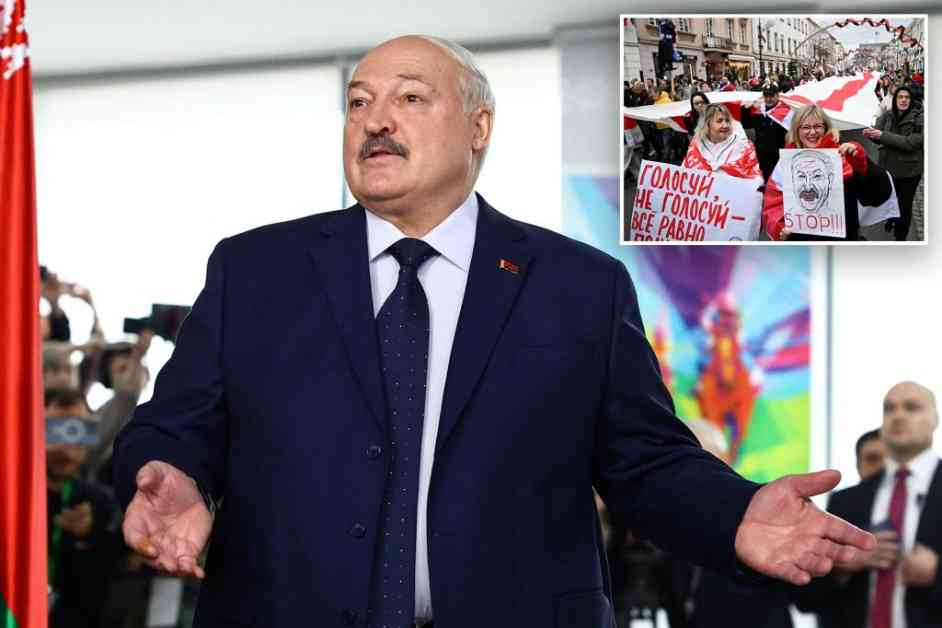Belarusian President Lukashenko Clinches Victory in Controversial Election
In a controversial turn of events, Alexander Lukashenko, the longstanding Belarusian leader and close ally of Russian President Vladimir Putin, secured his 31-year rule after being declared the winner of the recent presidential election by electoral officials. The victory, which extended Lukashenko’s grip on power, was met with skepticism and condemnation from Western governments who labeled the election as fraudulent and devoid of any semblance of democracy.
The Central Election Commission of Belarus announced the election results early Monday with Lukashenko claiming a staggering 86.8% of the vote. The lack of a serious challenge from the other candidates on the ballot raised suspicions of foul play, especially in a country where independent media is banned and leading opposition figures are either incarcerated or exiled.
The high voter turnout of 85.7% in the election, which saw 6.9 million eligible voters, did little to assuage concerns about the legitimacy of Lukashenko’s victory. Critics pointed to the systematic suppression of dissenting voices and the absence of a level playing field as clear indicators of an undemocratic process.
Despite facing international condemnation and accusations of authoritarianism, Lukashenko remained defiant and dismissive of the criticism. The Belarusian president, known for his brazen rhetoric, declared that he cared little for Western approval and was unfazed by the lack of recognition of his re-election.
Exiled opposition leader Sviatlana Tsikhanouskaya, a vocal critic of Lukashenko’s regime, described the election as a mere formality designed to perpetuate dictatorship. Tsikhanouskaya’s sentiments were echoed by protesters in various European cities who decried Lukashenko’s autocratic rule and demanded greater freedom and democracy in Belarus.
The international community, led by the European Union and the United States, refused to acknowledge Lukashenko as the legitimate leader of Belarus, citing his past use of security forces to quell dissent and suppress protests following the disputed 2020 election. The continued detention of political prisoners and the crackdown on civil liberties further strained Lukashenko’s relations with the West.
As Lukashenko’s grip on power tightens, the geopolitical landscape in Eastern Europe remains volatile, with the conflict in Ukraine shaping regional alliances and strategic interests. The presence of Russian tactical nuclear weapons in Belarus underscores the growing influence of Putin and the complexities of Lukashenko’s alliance with Russia.
Looking ahead, political analysts suggest that Lukashenko may seek to mend ties with the West in a bid to alleviate sanctions and restore diplomatic relations. However, the path to reconciliation remains fraught with challenges as Belarus navigates the aftermath of a contentious election and grapples with internal dissent and external pressures.












